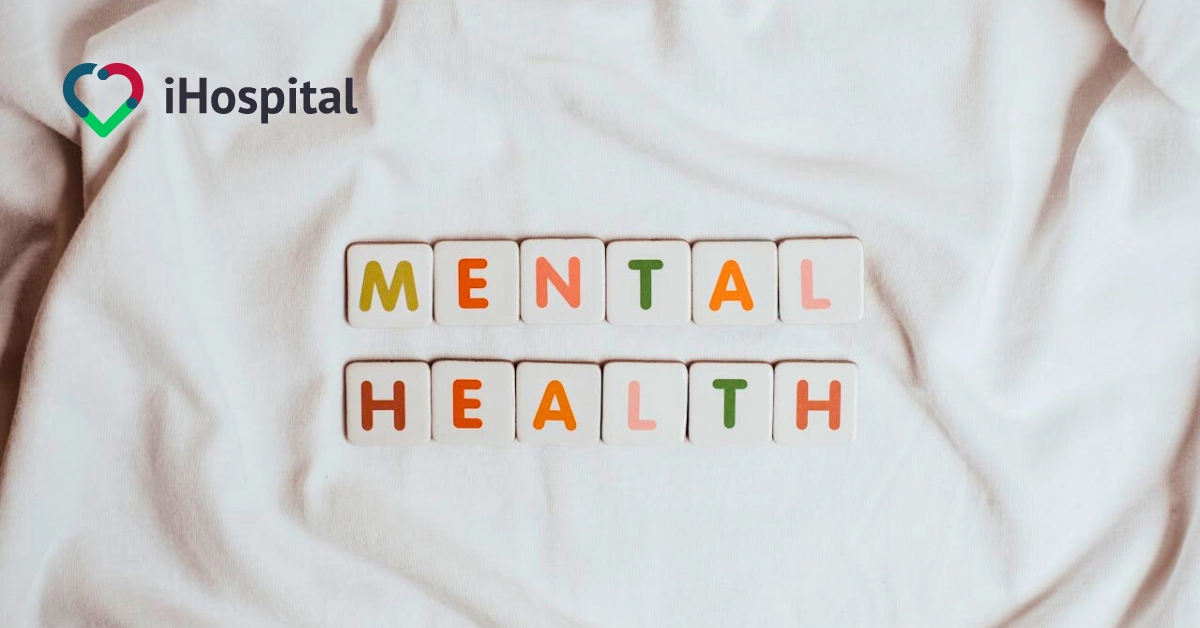
Prioritize your well-being: 10 tips for taking care of your mental health
2024-05-14
<p>Are you struggling to maintain your mental health? Has stress or anxiety become a constant companion? In a world where pressures and challenges are growing at a rapid pace, amidst all the responsibilities and obligations, it is more important than ever to take care of your mental health to live a life that is just as fulfilling as your physical health.</p><p>Developing practices that support your psychological resilience is the cornerstone and the biggest investment in your quality of life and happiness, enabling you to face life's challenges with resilience. But where do you start? How can you overcome the challenges of maintaining mental health in a practical way? In this article, I explore practical tips for mental wellness.</p><h2>Tips for mental wellness</h2><p>Whether you're trying to manage daily stressors or striving to overcome more significant challenges, the following mental wellness tips are sure to help, from small daily habits to more profound lifestyle changes, each tip is a stepping stone to a more balanced and comfortable life:</p><h3>1. Be optimistic and grateful for life's blessings</h3><p>Take time each day to appreciate the positive aspects of your life, no matter how small, as this is a great mood booster. Don't be negative, set realistic and achievable goals, and celebrate all your achievements, big or small.</p><h3>2. Exercise regularly</h3><p>Regular exercise has a positive effect on mental health and mood by reducing stress, anxiety, and depression, and even just 30 minutes of exercise can improve your mental and physical health.</p><p>Don't worry, it's not as hard as you think! You can start by exercising for a short period of time at first, then gradually increase the duration until you reach 30 minutes a day, most days of the week.</p><h3>3. Maintain a healthy diet</h3><p>Stick to a balanced diet rich in fruits, vegetables, whole grains, and lean proteins to improve your energy and focus, and minimize processed foods and sugary snacks that negatively affect your mood. Don't forget to drink enough water.</p><h3>4. Get enough sleep</h3><p>Good sleep is important for mental health; regular sleep patterns regulate hormones that affect mood and cognitive function. Try to get 7-9 hours of sleep each night, set a relaxing bedtime routine to help you unwind, including taking a shower, and minimize phone or computer use before bed, to avoid blue light that can affect sleep quality and therefore your mental health.</p><h3>5. Connect with loved ones</h3><p>Humans are social creatures by nature, so spend time with your loved ones, nurture your relationship with them, and ask for support when you feel overwhelmed - you may feel better if you share what you're going through with someone who cares about you. Consider joining a club, volunteering, or enrolling in a course to meet new people and expand your knowledge.</p><h3>6. Define your goals and set clear boundaries</h3><p>Remember that setting boundaries and saying "no" is not selfish; on the contrary, it can help you prioritize your time, energy, and resources, ensuring that you allocate them to activities and relationships that align with your values and goals, and eliminate those that drain your energy, cause you stress, or do not contribute positively to your life, thus preserving your mental health.</p><h3>7. Manage stress and avoid triggers</h3><p>Stress is an inevitable part of life, but it doesn't have to take over, as you can manage it through mindfulness techniques such as: Meditation, deep breathing exercises, and yoga, thereby increasing calmness and relaxation. Also, try to avoid everything that can trigger your stress in the first place.</p><h3>8. Limit your news and social media time</h3><p>While staying on top of the news is important, constant exposure to negative news and social media can overwhelm you and exacerbate feelings of stress and anxiety, so limit when you use them, and take a break from the digital world every now and then. It's also important to carefully select the pages and people you follow.</p><h3>9. Do activities that make you happy</h3><p>Whether it's reading, gardening, cooking, spending time in nature, listening to music, or even learning a new skill, making time for hobbies and activities that you find enjoyable and that make you happy can boost your mood and improve your overall outlook on life.</p><h3>10. Don't smoke</h3><p>Although smoking may help you vent your anger, reduce your stress and feel better in the short term, it is harmful to you and your mental health in the long term, as well as having a negative impact on your physical health and causing diseases that affect your mental health as well. It's the same with alcohol and drugs.</p><p> </p><h2>You don't have to face it alone: When to seek professional help?</h2><p>If you are suffering from stress or any psychological issues that you feel you can't cope with, don't hesitate to seek help and support from a psychologist, who can provide support and guidance and help you manage stress, anxiety and other psychological challenges.</p><p>Seek professional help also if you are experiencing disturbing symptoms that have lasted for two weeks or more, such as:</p><ul><li>Difficulty sleeping.</li><li>Changes in appetite.</li><li>Unexplained weight changes.</li><li>Difficulty getting out of bed in the morning due to mood.</li><li>Difficulty concentrating.</li><li>Loss of interest in things you used to find enjoyable.</li><li>Inability to complete usual tasks and activities.</li><li>Feeling irritable, frustrated, or restless.</li></ul><p>Do you feel constantly tired and sad, or notice a decline in your performance at work? Are you ready to take care of your mental health? <a href="https://www.ihospitalapp.com/ar/search/%D8%A7%D9%84%D8%B7%D8%A8-%D8%A7%D9%84%D9%86%D9%81%D8%B3%D9%8A/%D8%A7%D9%84%D8%A3%D8%B1%D8%AF%D9%86/%D8%B9%D9%85%D8%A7%D9%86">Book your appointment today</a> with iHospital's psychiatry experts, get immediate and specialized care, and remember that seeking help is the first step towards getting better.</p><hr><h2>References</h2><ol><li aria-level="1"><a href="https://www.nimh.nih.gov/health/topics/caring-for-your-mental-health">Caring for Your Mental Health</a>, National Institute of Mental Health (NIMH)</li><li aria-level="1"><a href="https://www.who.int/westernpacific/about/how-we-work/pacific-support/news/detail/07-10-2021-6-ways-to-take-care-of-your-mental-health-and-well-being-this-world-mental-health-day">6 ways to take care of your mental health and well-being this World Mental Health Day</a>, WHO</li><li aria-level="1"><a href="https://www.cdc.gov/emotional-wellbeing/features/how-right-now.htm">Taking Care of Your Mental Health</a>, CDC</li><li aria-level="1"><a href="https://www.nhs.uk/mental-health/self-help/guides-tools-and-activities/five-steps-to-mental-wellbeing/">5 steps to mental wellbeing</a>, NHS</li><li aria-level="1"><a href="https://familydoctor.org/mental-health/">Taking Care of Your Mental Health</a>, Family Doctor</li></ol>